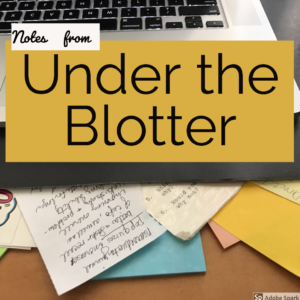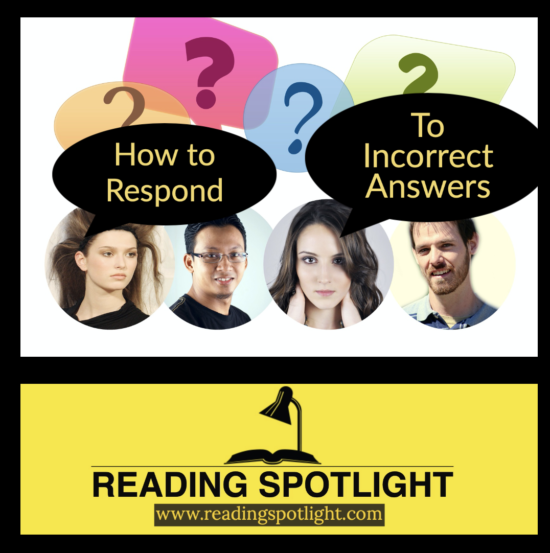Improving Comprehension:
Have you ever wondered if there is a helpful way to respond to students’ incorrect answers,
a way that will improve not only their comprehension,
but also their mindfulness when they are reading and participating in class discussions?
Here are some constructive tactics to use in replying to incorrect answers.
They are so much better than saying, “No!” or “Wrong!”
— which just stigmatizes students and doesn’t help them learn how to improve their answers.
Some useful strategies:
- Repeat the question exactly and say, “Think again.” Give adequate wait time. Do not say anything during this time because you will rob students of their think time. Ask the other students to put their hands down.
If needed, try one or more of these other suggestions:
- Give a meaningful prompt and/or clarification.
- Help the student to decide if the answer is in the text (factual) or in his or her head (inference). If it’s factual, help him locate it in the text.
- Tell part of the answer that was correct.
- Supply, if possible, the question to which that answer would be correct: “If I had asked____________________________, then your answer would be correct.” Then ask the original question again in the same format.
- Repeat the question exactly and ask for clues (not the answer) from other students.
- Give examples of possible answers. (Oral Multiple Choice)
- Give non-examples or opposites. (Tell what the answer is not.)
* * * * * * * * * * * * * * * * * * * * * * * * * *
- Ask the question in a different way, only after trying the previous responses listed.
- If necessary, ask another student to supply the correct answer. Ask the original question in the original format, and ask the unknowing student to repeat the correct answer. Tell him to remember it because you will ask him again later. Don’t forget to ask him!
- Be sure that you are asking more than factual questions. The ability to make inferences is an important reading and thinking skill, too.
- Expand the answer sometimes. Say, “Why did you say that?” It is important to be open to divergent or creative answers as well.
These concepts are from notes that I kept under my desk blotter because I thought they were so useful.

I referred to them often, and I hope you find them helpful, too.
Some ideas are from: Collins, C. Content Mastery Strategies. The Reading Teacher April,1987
You might interested in some of Reading Spotlight’s Comprehension Games:
© Reading Spotlight 2019


